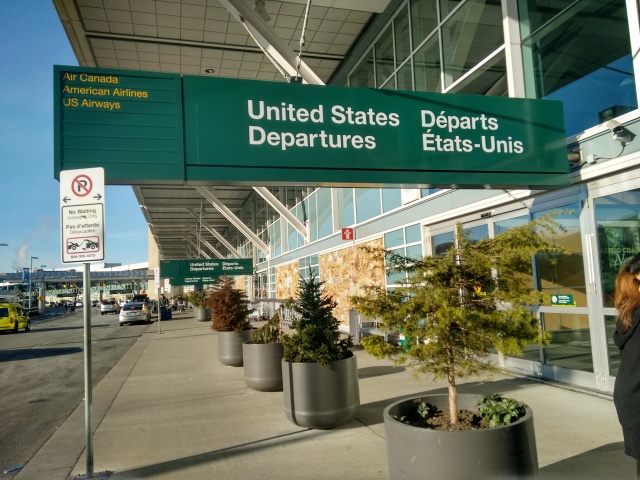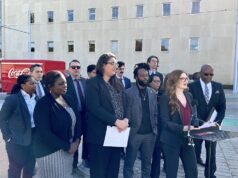Before 2001, Oklahoma driver’s licenses and ID cards were nothing more than a laminated piece of paper. They featured only a photo, basic information, organ donor status and any restrictions, such as vision impairments.
Although security requirements for Oklahoma’s licenses and ID cards have improved, they currently fail to comply with the 39 requirements for driver’s licenses, IDs and the locations that issue them under the federal REAL ID Act.
When the federal mandates were first rolled out, matching federal money was available, but, since then, those dollars have dried up. Although alternatives do exist, some in the Oklahoma Legislature are actively working to bring the state into compliance. The following outlines the background, concerns, alternatives and current activity surrounding Oklahoma’s off-and-on relationship with the REAL ID Act.
Oklahoma opts out
In 2007, the Legislature passed a bill at the urging of Gov. Brad Henry to block implementation of the REAL ID Act. SB 464 (posted in full at the end of this article) blocks DPS from implementing any REAL ID provisions.
The law states:
“… that the enactment into law by the United States Congress of the federal REAL ID Act of 2005, Public Law Number 109-13, is inimical to the security and well-being of the people of Oklahoma, will cause approximately Eight Million Dollars ($8,000,000.00) in added expense and inconvenience to our state, and was adopted by the United States Congress in violation of the principles of federalism contained in the Tenth Amendment to the United States Constitution …”
If lawmakers fail to repeal SB 464 and allow the Oklahoma Department of Public Safety to comply by October 2016, then Oklahomans will have to show extra identification when entering federal buildings, accessing military bases and — perhaps most relevant to the population at large — boarding commercial flights.
Oklahoma would need new technology to create compliant driver’s licenses and ID cards, but, as mentioned in the language of SB 464, that technology would come at a cost.
Privacy concerns
Besides the financial costs, opponents of the REAL ID Act cite privacy and potential civil-liberty infringement as their chief concerns. Brady Henderson, legal director of the Oklahoma chapter of the American Civil Liberties Union, said his group opposes REAL ID because of the potential for privacy infringement.
Henderson said a larger privacy debate surrounds REAL ID concerning how much private information a person willingly gives up versus how much the government takes.
“Most people are willing to give up a certain amount of privacy for their free Gmail account,” he said. “The price for that is data mining so Google can target ads directly at you.”
Henderson said that, when people walk up to the podium in the airport, they all know they are going to have to show IDs to prove their identities; however, the ACLU opposes the collection of high-resolution photos that would be stored in a database and could then be used to to track a person’s movements by a third-party.
“Once that data is collected, it’s out of the hands of the government and in the hands of government contractors,” Henderson said. “We’re at a point in history that we get to say, ‘I, as a citizen, decide how much privacy I give up.’”
Alternatives to compliance
On Nov. 19 in OKC, Public Safety Commissioner Michael Thompson told a public hearing his agency has machines that can produce IDs for people who want their driver’s licenses to be REAL ID compliant and the ability to produce ones that aren’t for those who oppose it, according to the Tulsa World.
Otherwise, the most common form of REAL ID-compliant identification available to the public is the U.S. passport.
New (over 16):
$55 (passport card only)
$165 (passport book and card)New (under 16):
$40 (passport card only)
$120 (passport book and card)
Passport prices include a $25 fee charged to recover the cost of executing the application, and processing can take anywhere between two to three weeks for expedited requests and four to six weeks for standard requests.
State reversing course on REAL ID
Rep. Jason Dunnington (D-OKC) thinks it’s time the state Legislature act and comply with the federal standards before the latest extension runs out in October 2016. Although he didn’t give any specifics, Dunnington did say that legislation was being talked about in the House.
Rep. Chris Kannady (R-OKC) agrees with Dunnington that it’s time for Oklahoma lawmakers to implement the federal standards contained in REAL ID.
“It’s time to fix this,” Kannady said. “The law has been vetted by the U.S. House and Senate. It’s time to comply with the law.”
To that end, Sen. John Sparks (D-Norman) and Sen. Kay Floyd (D-OKC) announced a bill on Oct. 7 that would bring the state into compliance with the federal standards, according to the Tulsa World. The two said the state needs to conform to the REAL ID Act before Oklahomans encounter problems boarding commercial aircraft and entering federal places.
The Oklahoma Department of Public Safety, which oversees driver’s licenses and ID cards issued in the state, was contacted multiple times to see where the Oklahoma stands regarding the 39 points of compliance REAL ID requires, but the department failed to return calls for comment.
https://nondoc.wpengine.netdna-cdn.com/wp-content/uploads/2015/12/sb464.pdf” download=”all”]






















